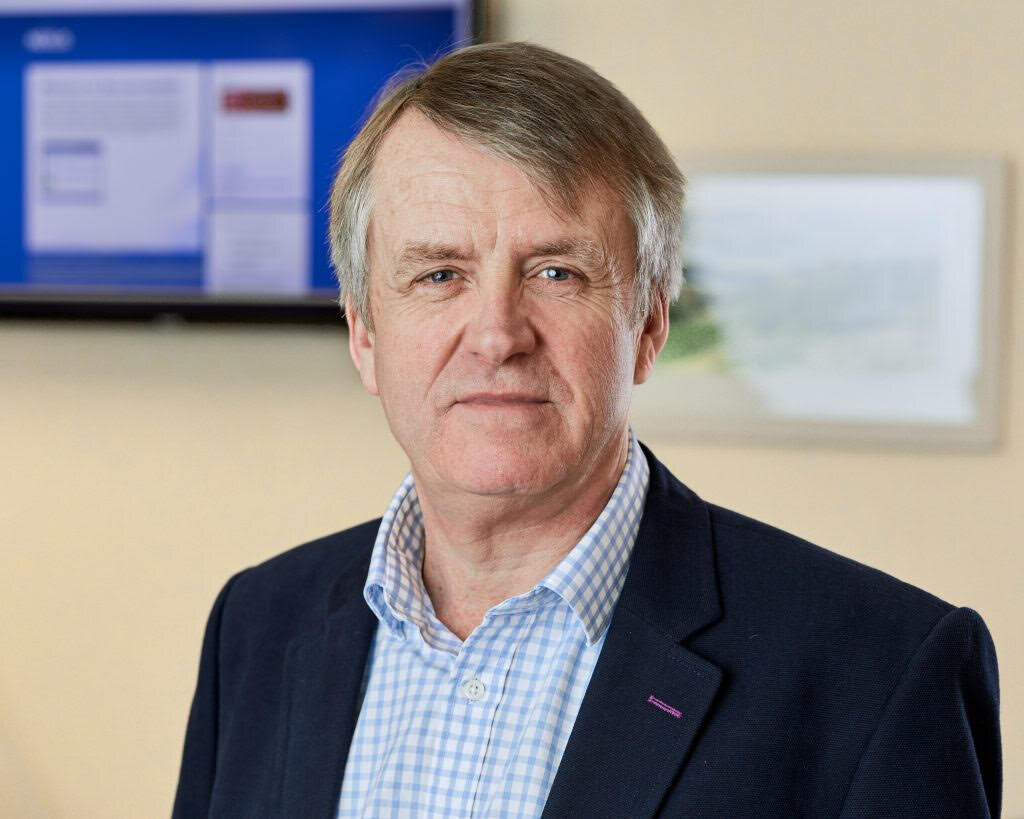
Charles Buckley - Investment Management Advisor
Charles Buckley
Charles joined Gore Browne Investment Management in April 2006 and became a Shareholder and Director on 1 December that year.
His background, first qualifying as a Chartered Accountant with Touche Ross in 1980 and then joining Cazenove & Co. as an equity research analyst in 1985 provides an ideal foundation for his current role. He became a Partner of Cazenove & Co. in 1994 and took over the running of Cazenove Capital Management’s private client office in Oxford in 2001 as well as Salisbury in 2003.
As an Investment Director, he works closely with James Crarer and is responsible for looking after and reporting to clients, constructing portfolios and making investment decisions. In addition, Charles researches and monitors individual equity investments, collective investment funds and hedge funds, meeting managers throughout the year and contributing to the Investment Process.
In his spare time, shaking off the requirement to organise and pay for family holidays has proved difficult, but he also finds time to cycle and support the Welsh rugby team.
“I feel so lucky to be at GBIM.”
- Former CEO, FTSE250 Company
An interview with Charles
Tell us a little bit about your work and your role.
I am a Private Client Discretionary Investment Manager, so my job entails finding potential clients with investable assets in excess of £100k (ideally £500k or more), which they can afford to invest in bonds, equities and alternative assets for a minimum of five years (ideally ten years or more). Most of our new clients come by word of mouth.
A typical day will include phone calls and emails both from and to clients, reviewing investments both held by clients and under consideration, buying and selling investments on behalf of clients, either following a change in our view on the investment or as a result of a need for cash by the client, attending meetings with fund managers and preparing new client pitches.
What does your work with a client usually involve?
Once people become clients, I look after them as I would wish to be looked after myself.
Our USP is that we do put the client first. This is evidenced by the fact that we do not charge commission on dealing – so we have no interest in trading investments unnecessarily; we own all the investments our clients own, in our own portfolios – so we put our money where our mouth is – and we have no in-house investment funds – we just have access to the best third party investment managers.
I am required to report to each client, every quarter on the performance of their investments and the charges that have been levied on their account.
I hope to be regarded as a trusted adviser by every client and taken into their confidence on all matters.
How did you get into this field of work?
I am an accountant by training (ACA 1980 with Touche Ross) but decided that there was more to life. After a false start with Commercial Union in corporate finance, I joined Cazenove & Co as an equity analyst in 1985 and haven’t looked back since. I started in private clients in Oxford via a circuitous route in 2001, but an ability to get on with most people has been my most useful attribute.
The assets that arrive with us are either an existing investment portfolio or a cash deposit and can be held in a taxable account, an ISA, a SIPP or an Offshore Bond. Increasingly, inter-generational financial planning is affecting how clients structure their assets.
What excites you about your role?
I have pretty free rein to do what I think is in the client’s best interest and have a leadership and mentoring role with most other members of staff.
What does your typical client look like?
Typically, potential clients are already being looked after by another firm and are not happy with their service level, or performance, or both. Other avenues are individuals who have sold their business or residential property, received an inheritance or have recently divorced.
Most of our clients have some knowledge of financial markets and investment but do not feel they have the time, expertise or access that they require to do it successfully.
What are the challenges currently facing your sector?
The burden of “closing the stable door after the horse has bolted” regulation continues to increase.
What’s the best advice you’ve been given?
The best advice that I have ever received is “don’t believe your own bullsh*t”.
How do you see your work changing over the next ten years?
Lots of “new things” have come and gone in our industry but clients are likely to continue to want to deal with another human being.
What do you do when you’re not at work?
I enjoy many other things outside the office, but I am interested in what I do so there is plenty of overlap.
What are the benefits do you think of working together in a collective way like Runway Advisors?
Business development through a group of like-minded professionals cross-referring is a tried and tested formula.
Could you provide an example of a common question or issue that clients present you with, and your response to it?
“If I give you a million pounds, what will it be worth in 12 months time?”
My quip would be “if I knew that, I wouldn’t need to work”, but the serious answer is that all investment involves risk and potential returns are impossible to gauge accurately over the short term. Over the longer term (10 years plus), depending on your risk tolerance, it is reasonable to expect a net return of 5% per annum, but it will not be linear and could easily be more or less.

